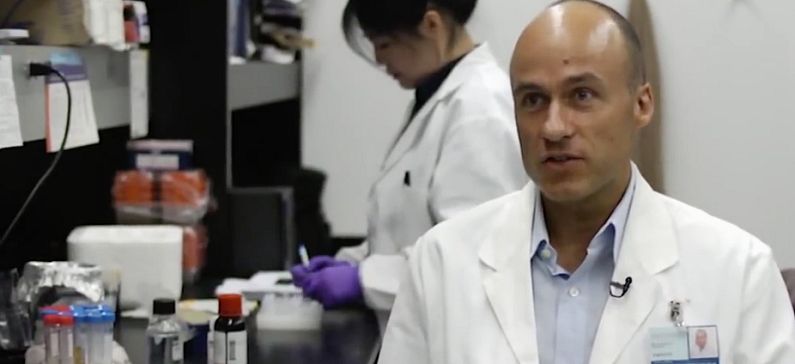
Greek researcher behind the new genetic weapon against malaria
A team led by George Dimopoulos, professor in the Bloomberg School’s Department of Molecular Microbiology and Immunology, made small modifications to the DNA of malaria-transmitting Anopheles mosquitoes to boost the activity of immune genes in the insects. The enhanced immunity made the mosquitoes more resistant to infection by malaria parasites, and thus less likely to transmit the parasites to humans.
That result was expected. What wasn’t expected was the unusually high efficiency with which the modified mosquitoes spread their genetic modification to ensuing generations in a mixed population of modified and unmodified, wild-type mosquitoes. Investigating this surprising result, Dimopoulos and colleagues found that boosting the mosquitoes’ immune genes also boosted their defenses against bacteria, reducing the normal bacterial load and altering the normal mix of bacterial species in the mosquito intestine and reproductive organs. This change in the insect “microbiota” in turn led to a change in mating preferences, such that modified male mosquitoes began to prefer unmodified, wild-type females, while wild-type males began to prefer modified females.
“We believe that by changing the microbiota we’re changing the scent of modified mosquitoes—which in turn alters mating preference,” Dimopoulos says. “It’s the perfect change in mating preference in this case, because it maximizes the chances of producing genetically modified offspring when mosquitoes compete for mates.”
It’s important to note that the DNA modifications only involved an alteration of the mosquito’s own gene activity, and not the introduction of foreign genes. Other laboratories are developing a different method to release mosquito genetic modifications into test populations using complex “gene drive” DNA modifications. These essentially override the normal dynamics of inheritance to force new genes into nearly 100 percent of the offspring of mating mosquitoes. While potentially very promising, gene drives are still controversial because of their artificiality, complexity, and potential for long-term instability.
The findings from Dimopoulos and his colleagues show that even a subtle genetic modification that merely boosts the activity of existing genes can spread quickly into a mosquito population—without the need for a complex gene drive system. The two systems could also be combined, however, to maximize the spread of malaria-resistant mosquitoes.
Dimopoulos’s modified mosquito population has now been living in a colony in his laboratory for more than seven yearsand has retained its high level of resistance to malaria for all that time, without any apparent adverse side effects from the genetic modification.
“These mosquitoes haven’t changed in terms of feeding behavior or any other things that could be of concern,” Dimopoulos says.
Dimopoulos and his colleagues now plan to study the effects of their genetic modifications in larger settings, such as the institute’s Mosquito House in Zambia.
Read also:










